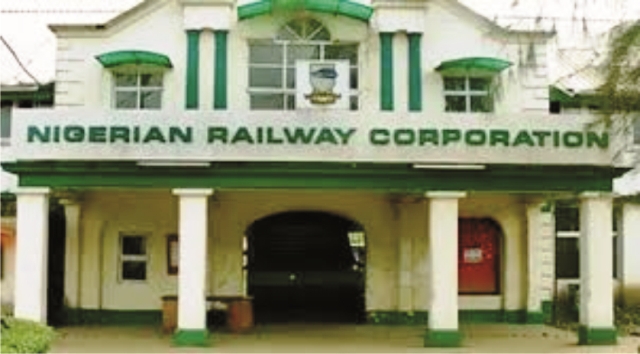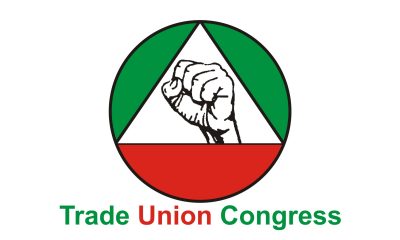Business
Community Tasks DISCO On Power Supply
Some artisans and residents of Magoro Community on the Lagos/Ibadan Expressway last Sunday urged the Ibadan Electricity Distribution Company (IBDEC) to restore electricity supply instead of making empty promises.
They spoke with newsmen on the heels of promise made by IBDEC to restore electricity to the area unfailingly last week after 11 years of darkness.
Our source reported that the community on the Magboro/Ibafo axis has about 100,000 inhabitants but has been in darkness with business activities on the low in spite of the population.
The community has in the past put up several measures to ensure that the electricity was restored but it was futile.
It will be recalled that sometime in March last year, the communities staged a protest on the busy Lagos/Ibadan expressway blocking the section of the road to press their demands.
There was, however, promises made by IBDEC to restore power back to the community which were not fulfilled.
The last promise was made in Abuja during the energy summit where IBDEC restated its commitment to restore power to the affected community last week.
However, with that hope that IBDEC will honour its promises, the ecstatic residents and artisans were expectant of the electricity only for their hopes to be dashed.
On noticing that IBDEC is not ready to put action to its words, the visibly angry artisans and residents called on the electricity distribution company to stop giving the community fake hope.
Some of the artisans noted that they had been subjected to untold hardships since the communities were thrown into more than a decade-long darkness which had paralysed business activities.
An artisan, who owns a welding shop in Magboro, Mr Kamal Odekunle, said that things were expensive in the community because there is no public power supply.
“People complain of our services being on the high side because we rely on electricity generator to power our equipment. How can we make ends meet with this perennial power outage?
“What we are hearing is that the power will be restored another time, it is tomorrow. We have tried all the power within us to get the electricity to no avail.
“Government has not shown enough commitment too, maybe they have the wrong notion that no serious economic activities can happen here. That is wrong.
“If the economic activities are on the right track here, government can come to collect taxes here and we will happily pay. This is a community of more than 100,000 people,’’ he said.
The Secretary of Magboro Community Development Association (CDA), Mr Fola Lasisi, said that the community had yet to have electricity due to multiple problems.
“The power issue with our area is due to multiple problems on the part of the contractor handling the project. We have no idea when all these will end.
“What we were briefed on was that the contractor and IBDEC are still working on the lines in which some faulty insulators were discovered.
“It was reported that the contractor that handled the project used substandard products, so, they are in the process of changing all the faulty insulators used by the contractor.
“IBDEC reported that they have provided about 1,200 insulators in which 800 had been used and the work has not yet finished. They should be around Mountain of Fire and Miracles Church now,’’ he said.
Lasisi said that the project would also accommodate other communities on the Lagos/Ibadan expressway, namely Ibafo and Mowe.
“The project is still going to Ibafo and then to Mowe so they are still working on the project.
“The promise made in front of the Minister of Power, Works and Housing, Mr Raji Fashola, cannot be depended on because of many underlining factors. That promise was just a wish.
“It is not solely IBDECs fault but that of the contractors handling the project. IBDEC only offer to provide equipment and personnel while the contractor will
Business
Eazipay Offers Zero-Interest Loans To 150,000 SMEs, Employees

With a mission to ignite growth, encourage business continuity and help businesses and employees thrive, Eazipay is gearing up to propel the dreams of 150,000 SMEs and employees to new heights through her relief fund.
Gone are the days of financial constraints and stifled dreams. With Eazipay’s support, SMEs and employees alike can bid farewell to limitations and embrace a world of endless possibilities.
Whether it’s start up, business expansion or personal development, Eazipay is here to make dreams come true.
The mind-blowing initiative, which kicked off this month, would end in December, and will also offer a range of perks and benefits designed to put a smile on the faces of SMEs and employees alike.
From exclusive discounts to various advisory services and beyond, Eazipay is committed to spreading happiness and creating lasting impact in people’s lives and to the growth of businesses.
The technology company which offers products and services that range from payroll management to IT/Device management and assessments, “Eazipay isn’t just providing financial support but also unleashing a wave of growth and prosperity for SMEs and employees across the nation.
“Interested businesses and individuals can take part in this initiative directly from the Eazipay website: www.myeazipay.com”.
Business
SMEs Critical For Sustainable Dev – Commissioner

The Commissioner of Finance, Lagos State, Abayomi Oluyomi, has described Small and medium Enterprises (SMEs) as a critical engine for sustainable development in any economy.
He said this recently at the 10th anniversary of the Alert Group Microfinance Bank and the opening of their new head office in Lagos.
According to the National Bureau of Statistics, SMEs accounted for about 50 per cent of Nigeria’s gross.
He commended the positive impact of the Alert MFB as it empowers SMEs in the State.
“Alert MFB in the past 10 years has been at the forefront of empowering SMEs in Lagos State, disbursing over N30bn in loans to over 30,000 individuals having small to medium businesses over that period, which is quite remarkable”, he said.
Speaking, the Group Managing Director of Alert Group, Dr Kazeem Olanrewaju, revealed that the financial institution commenced business in 2013 as a microfinance bank.
“We started this journey in 2013 and it has been expanding. Today, they have about 10 branches across Lagos. They have supported well over 30,000 clients and have disbursed over N30bn.
“The company has been profitable since the second year. Looking at the market and the available opportunity, the Alert MFB board decided to come together to establish a Microfinance Institute (MFI), which is the Auto Bucks Lenders”, Dr. Olanrewaju said.
The GMD further stated that the company was focused more on supporting businesses and small and medium enterprises.
“The loan to support business represents over 98 per cent. The consumer loans you will see are the ones given to entrepreneurs. So, the area of focus of Alert MFB and Auto Bucks Lenders is to support businesses across the country.
“With the establishment of Auto Bucks Lenders, we have the opportunity to also do business outside Lagos. So, presently, we have offices in Ogun State and Oyo State. We intend to go to every part of Nigeria to support what we are doing”, he declared.
Business
Retailers Explain Price Drop In Cement Cost

The cement market, in the last couple of weeks, has seen a significant turnaround with prices tumbling from between N10,000 and N15,000 per 50kg bag to between N7,000 and N8,000.
The sudden rise in the prices of cement and other major building materials in February this year upsets the construction industry, especially in real estate, where many developers were forced to abandon building sites.
A recent market survey conducted by The Tide’s source in different locations across the country confirmed a price drop, ranging between N7,000 and N7,500 per bag, though BUA cement is selling for N7,500 to N7,800 per 50kg bag, depending on location.
Both entrepreneurs and major distributors who were interviewed, explained that the price drop is due to low demand and government’s intervention.
At the peak of the price hike, the Federal Government called a meeting with major producers where it was agreed that a bag of cement should be between for N7,000 to N8,000, depending on location.
But the producers did not comply with this agreement immediately, followin which “Nigerians stopped demanding for cement; many project sites were abandoned as developers sat back and waited for the prices to come down.
“So, what has happened is an inter-play of demand and supply with price responding, which is Economics at work”, Collins Okpala, a cement dealer, told the source in Abuja.
In the Nyanya area of the Federal Capital Territory, a 50-kg bag of Dangote cement now sells for between N7,000 and N7,500, while BUA cement sells for between N8,500 and N9,500, down from between N11,000 and N12,000 respectively.
In Lagos, the product has seen significant price drop too. In Ojo area of the state, Sebastin Ovie, a dealer, told our reporter that what has happened is a crash from the January price, attributing the crash to low demand and stronger naira.
“The current price of the product is between N7,000 and N7,500 per 50kg bag, depending on the brand. This is a significant drop from the average of N12,000 which most dealers were selling in February and March”, he said.
A dealer in Agege area of the state who identified himself as Taofik Olateju, told the source that sales are picking up due to the drop in price.
He recalled that Nigerians at a point stopped buying due to the high price of the product at N15,000 per bag.
“I am sure most dealers ran at a loss then because we had mainly old stocks which we wanted to offload quickly”, he said, confirming that the product sells for between N7,500 and N8,000, depending on the brand and the demand for the brand.
Continuing, Olateju noted that “because the naira is now doing well against the dollar, it will be unreasonable for manufacturers to continue to sell the product at the old prices. I also believe that the federal government’s intervention and the threat to license more importers may have worked, leading to the reduction in price”.
In Enugu, the source reports that the product sells for between N7,200 and N7,500 depending on the brand and location.
“This is a city where the price of a 50kg bag went for as high as N12,000 and N13,000 in some cases in February and March”, Samuel Chikwendu said.
He added that the prices of other building materials, especially iron rods, have also dropped considerably which is why, he said, activities are picking up again at construction sites.
The story is slightly different in Owerri, the capital of Imo State, where Innocent Okonkwo told the source that low demand was also driving the price drop, adding that a 50kg bag was selling for N9,000 on the average in the state.
Sundry market observers are optimistic of further price reductions, but they remain cautious as manufacturers, wholesalers, and retailers continue to play critical roles in setting prices for end-users.
They lamented, however, that despite Nigeria’s status as one of the largest producers of cement in Africa, the price of the product continues to rise, particularly in the face of high inflation impacting the building materials market generally.
Okpala in Abuja highlighted the variations arising from direct sourcing from manufacturers versus procurement through dealers, with traders holding old stocks selling products at prices ranging from N8,500, N8,300 to N8,000 per bag.
Lucy Nwachukwu, another dealer in Abuja, said the significance of procurement volume in determining cement costs, noting that stability in prices has been observed over the past month, with the product retailing for between N7,000 and N7,800 depending on the brand.
In Port Harcourt also, a customer, Daniel Etteobong Effiong, said the price goes between N7500 to N8500, depending on the brand and the location one is buying from.
-
News1 day ago
We’re Open To Partnerships To Enhance Status Of Rivers People -Fubara
-
Nation1 day ago
Banigo Decries Malaria Prevalence
-
Rivers1 day ago
Ekpeye Traditional Rulers Seek Help For Odiemudie Community
-

 Business1 day ago
Business1 day agoEazipay Offers Zero-Interest Loans To 150,000 SMEs, Employees
-

 News1 day ago
News1 day ago524 Firms Bid For NRC’s 2024 Capital Procurement -Okhiria
-
Politics1 day ago
How We Saved N2.3bn From LG Reforms – Diri
-
Sports1 day ago
WADA Plans Review Of Failed Tests
-

 News1 day ago
News1 day agoTUC Wants FG To Pay Wage Award For March, April

